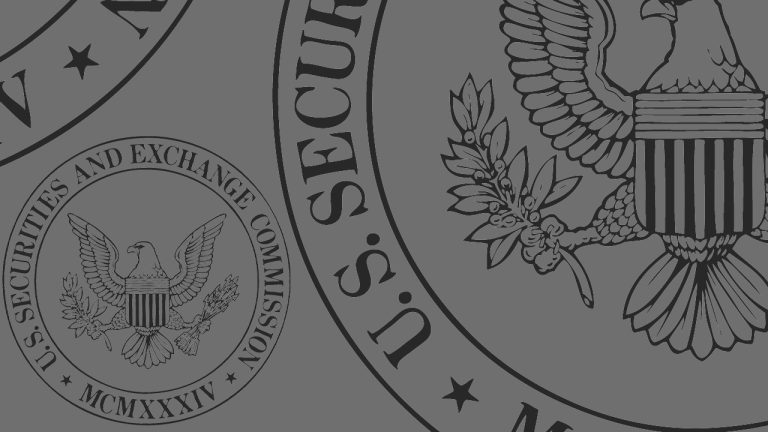 A New York federal judge has ruled that the Securities and Exchange Commission (SEC) has “plausibly alleged” that Gemini and Genesis violated securities laws through the Gemini Earn program. Judge Edgardo Ramos Highlights Hurdles in Dismissing Injunction Claims Early; Cites Howey and Reves A federal court in New York has affirmed the plausibility of the […]
A New York federal judge has ruled that the Securities and Exchange Commission (SEC) has “plausibly alleged” that Gemini and Genesis violated securities laws through the Gemini Earn program. Judge Edgardo Ramos Highlights Hurdles in Dismissing Injunction Claims Early; Cites Howey and Reves A federal court in New York has affirmed the plausibility of the […]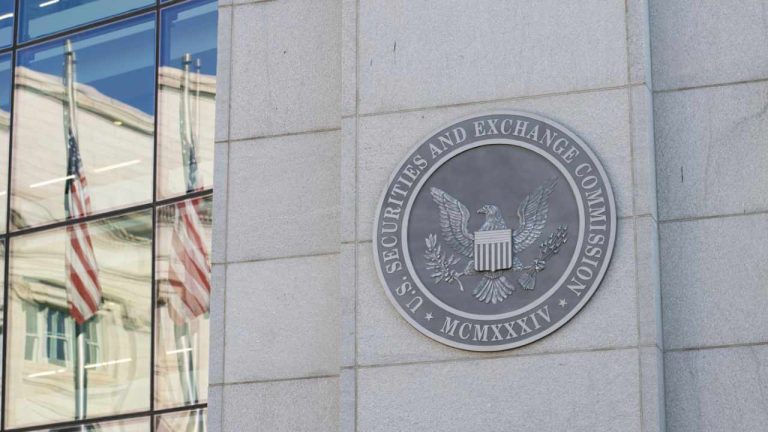 A U.S. district judge has sided with the Securities and Exchange Commission (SEC) in a ruling that declares the trading of certain crypto assets on secondary markets to be securities transactions. This decision emerged from an insider trading case involving crypto exchange Coinbase’s former product manager Ishan Wahi, his brother Nikhil Wahi, and their friend […]
A U.S. district judge has sided with the Securities and Exchange Commission (SEC) in a ruling that declares the trading of certain crypto assets on secondary markets to be securities transactions. This decision emerged from an insider trading case involving crypto exchange Coinbase’s former product manager Ishan Wahi, his brother Nikhil Wahi, and their friend […]
The SEC highlighted contradictory conclusions from similar cases, along with other pending decisions as some of the contentious legal issues.
The U.S. Securities and Exchange Commission has submitted a filing urging the court to grant its motion to appeal a ruling from the Ripple Labs lawsuit that deemed that XRP was not a security when sold to retail investors.
The agency argued that there are “knotty legal problems” surrounding the court's application of the law — specifically the Howey Test — that warrant a review.
#XRPCommunity #SECGov v. #Ripple #XRP BREAKING: The SEC has filed its Reply Memorandum in Further Support of its Motion to Certify Interlocutory Appeal.https://t.co/KE1MzYKbVD
— James K. Filan (@FilanLaw) September 8, 2023
As per a Sept. 8 filing, the SEC called for the U.S. District Court for the Southern District of New York to grant its motion for interlocutory appeal, and “stay further proceedings until the resolution of that appeal.”
“The SEC respectfully requests certification for appellate review now because the issues raised by the Court’s order on summary judgment (D.E. 874) (‘Order’) present precisely the kinds of ‘knotty legal problems’ that led Congress to provide for interlocutory review.”
Judge Analisa Torres ruled in July that XRP is generally not a security under SEC guidelines, particularly when distributed via programmatic sales (e.g. sold to retail via exchanges).
In the latest filing, the SEC argued that the rulings on programmatic sales and other distributions present “legal questions” that are significant enough for the agency’s interlocutory appeal to be approved by the court.
The SEC suggested that this is down to there being a legal gray area as to whether certain crypto assets fall under the classification of investment contracts via the Howey Test or not, as it highlighted court proceedings from other cases.
“At least two opinions within this District reach contradictory legal conclusions on these issues and many other courts are considering whether similar offers and sales [...] satisfy Howey,” the SEC stated, adding that:
“While interlocutory appeal should be the exception, not the rule, this is the unusual case where the Defendants themselves say that the issues have industry-wide significance and are of special consequence, and thus is precisely the type of case as to which the Second Circuit has invited interlocutory appeal.”
These sentiments however, seemingly contradict previous statements from the agency and its chairman Gary Gensler.
On multiple occasions, Gensler has staunchly shot down the need for new crypto regulation, as he has asserted that the SEC already has clear guidelines that adequately cover the full scope of the crypto market.
Such a view includes the notion that the most of the crypto on the market falls under the definition of a security.
Related: Here’s what happened in crypto today
In a Sept. 8 tweet, Ripple’s chief legal officer Stuart Alderoty called the filing “hypocritical” as he noted that: “After years of its chairman saying the ‘rules are clear and must be obeyed’ the SEC now cries that an appeal is urgently needed to resolve these ‘knotty legal problems’."
Another SEC filing, another hypocritical pivot…
— Stuart Alderoty (@s_alderoty) September 8, 2023
After years of its chairman saying the “rules are clear and must be obeyed” the SEC now cries that an appeal is urgently needed to resolve these “knotty legal problems." https://t.co/ige4neIWRD
Coinbase’s chief legal officer Paul Grewal also chimed in by questioning how crypto firms can be on “fair notice” if there are knotty legal questions that need to be considered in court.
The SEC initially moved to appeal and stay the decision from Torres in August, arguing that there was “substantial ground for differences of opinion.”
On Sept. 1, Ripple Labs fired back by filing a memorandum of law in opposition, arguing that the SEC had unsubstantial grounds to request an appeal.
Magazine: Crypto regulation — Does SEC Chair Gary Gensler have the final say?

Senator Lummis argued that the SEC is attempting to “circumvent the political process” by establishing itself as the main authority on crypto.
Crypto-friendly Senator Cynthia Lummis has filed an Amicus Brief supporting Coinbase’s motion to dismiss the U.S. Securities and Exchange Commission's lawsuit against the firm.
An Amicus Brief is a document filed in court by a party that is not directly involved with the related case. They are generally used to add supporting arguments to one side of the lawsuit, and emphasize how the case will have a broader impact beyond the involved parties.
As per the Aug. 11 filing with the U.S. District Court for the Southern District of New York, Lummis stressed that “this is no run-of-the-mill enforcement case.”
The Senator asserted that with its lawsuit against Coinbase over alleged securities violations, the SEC is pushing to obtain “primary influence” over the crypto sector at a time in which regulation and other factors are still “under active consideration by Congress and multiple agencies.”
“The SEC brings this enforcement action in the midst of debates in the halls of Congress and around the world about how crypto assets should be regulated. The Constitution empowers Congress—not the SEC—to legislate in such an area of profound economic and political significance.”
“Although the SEC seeks broad authority over crypto asset markets, most legislative proposals in Congress would instead grant much of that authority to other agencies. Unsatisfied, the SEC seeks to circumvent the political process to commandeer that authority for itself,” she added.
Senator Cynthia Lummis (R. WY) just filed an Amicus Brief supporting @Coinbase's motion to dismiss the SEC's complaint.@SenLummis is Co-Sponsor of the Lummis-Gillibrand crypto regulation bill.
— MetaLawMan (@MetaLawMan) August 11, 2023
Sen. Lummis' brief argues that:
1. Congress has not granted the SEC authority to…
Coinbase filed a motion to dismiss on Aug. 4, arguing that the SEC had “violated due process, abused its discretion, and abandoned its own earlier interpretations of the securities laws,” by asserting authority over the exchange.
In the court filing, Lummis went on to argue that the SEC has been overstepping its authority by claiming that nearly all crypto assets are securities, as she questioned the agency's supposed regulation-by-enforcement approach, or what she described as an attempt to “legislate by enforcement.”
“The SEC’s attempt to shoehorn an entire new class of assets into the existing definition of a ‘security,’ and thereby add to the definition enumerated by Congress, exceeds the SEC’s authority, encroaches on Congress’s lawmaking, and contravenes the separation of powers. The SEC cannot legislate by enforcement.”
Related: SEC decision on Bitcoin ETFs won’t leave out Wall Street giants
Lummis is not alone in filing an Amicus Brief supporting Coinbase’s motion to dismiss.
On Aug. 11, crypto advocacy groups including the Blockchain Association, Crypto Council for Innovation, Chamber of Progress and Consumer Tech Association also submitted a joint filing.
In an X (Twitter) thread announcing the move, the Blockchain Association’s senior counsel Marisa Tashman echoed Lummis’ comments that the “SEC's regulatory authority extends only to what Congress granted it,” as she highlighted the risks of the SEC’s approach to the sector:
“The SEC's interpretation threatens to sweep in many non-security assets - this can't be what Congress intended when it granted the SEC authority to regulate securities.”
“The SEC takes the position that nearly all digital assets sold on the secondary market are investment contracts under the federal securities laws. But, these transactions involve no ongoing contractual obligations. The SEC's position is wrong,” she added.
1/ @BlockchainAssn and @crypto_council filed a brief with @ProgressChamber and @CTATech supporting @coinbase against the SEC.
— Marisa Tashman Coppel (@MTCoppel) August 11, 2023
We explain why the major questions doctrine precludes @SECGov from enforcing their interpretation of "investment contract." https://t.co/3JohzZK2lW pic.twitter.com/SrghLHpfmA
Magazine: Crypto regulation — Does SEC Chair Gary Gensler have the final say?
 Bittrex Inc., the U.S.-based cryptocurrency exchange, has filed for Chapter 11 bankruptcy protection in Delaware after being sued by the U.S. Securities and Exchange Commission for failing to register with the regulator. The exchange reportedly has over 100,000 creditors and liabilities ranging from $500 million to $1 billion. Bittrex Bankruptcy Filing Reveals Over 100,000 Creditors […]
Bittrex Inc., the U.S.-based cryptocurrency exchange, has filed for Chapter 11 bankruptcy protection in Delaware after being sued by the U.S. Securities and Exchange Commission for failing to register with the regulator. The exchange reportedly has over 100,000 creditors and liabilities ranging from $500 million to $1 billion. Bittrex Bankruptcy Filing Reveals Over 100,000 Creditors […]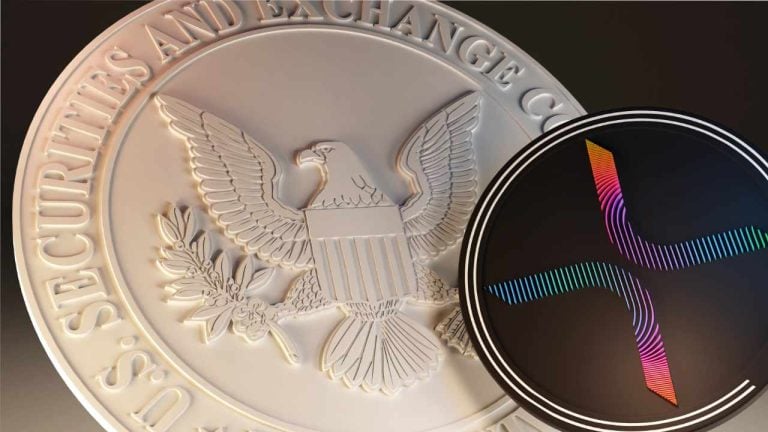 Ripple CEO Brad Garlinghouse says that he is “optimistic” that the Securities and Exchange Commission (SEC) lawsuit over xrp “will certainly be resolved in 2023.” He added that it could even be resolved in the first half of this year. “I feel very good about where we are relative to the law and the facts, […]
Ripple CEO Brad Garlinghouse says that he is “optimistic” that the Securities and Exchange Commission (SEC) lawsuit over xrp “will certainly be resolved in 2023.” He added that it could even be resolved in the first half of this year. “I feel very good about where we are relative to the law and the facts, […]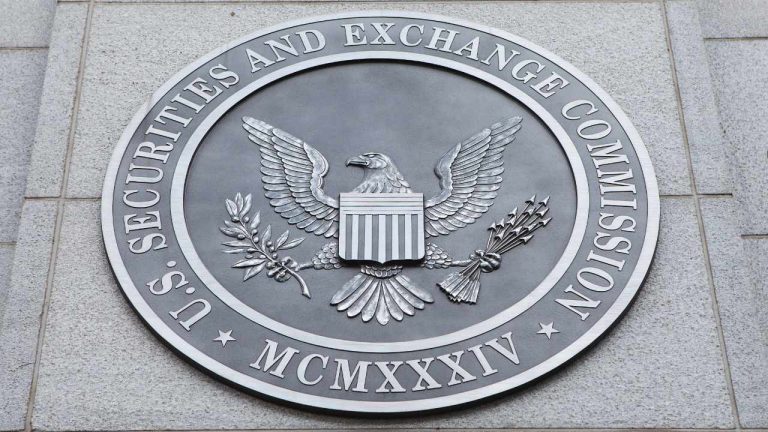 The U.S. Securities and Exchange Commission (SEC) has charged crypto exchange Gemini and crypto lender Genesis Global Capital, a subsidiary of Digital Currency Group (DCG). “Through this unregistered offering, Genesis and Gemini raised billions of dollars’ worth of crypto assets from hundreds of thousands of investors,” the SEC alleged. SEC Takes Action Against Gemini and […]
The U.S. Securities and Exchange Commission (SEC) has charged crypto exchange Gemini and crypto lender Genesis Global Capital, a subsidiary of Digital Currency Group (DCG). “Through this unregistered offering, Genesis and Gemini raised billions of dollars’ worth of crypto assets from hundreds of thousands of investors,” the SEC alleged. SEC Takes Action Against Gemini and […] The CEO of Ripple Labs, Brad Garlinghouse, believes that the crypto industry will come out stronger after the FTX meltdown if transparency and trust remain its key focus. He stressed the importance of having “honest conversations about solving real-world problems with crypto and blockchain.” Ripple’s CEO Optimistic About Crypto’s Recovery After FTX Meltdown The CEO […]
The CEO of Ripple Labs, Brad Garlinghouse, believes that the crypto industry will come out stronger after the FTX meltdown if transparency and trust remain its key focus. He stressed the importance of having “honest conversations about solving real-world problems with crypto and blockchain.” Ripple’s CEO Optimistic About Crypto’s Recovery After FTX Meltdown The CEO […]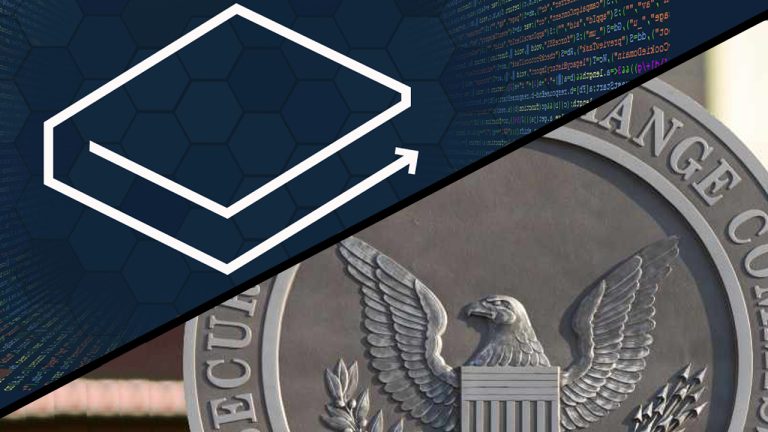 The U.S. Securities and Exchange Commission (SEC) has won a court case against the blockchain-powered publishing platform LBRY. According to a New Hampshire district court ruling, Judge Paul Barbadoro agreed with SEC that the project’s native asset LBC was considered an investment contract or a transferable share representing a certificate of interest. On Twitter, LBRY […]
The U.S. Securities and Exchange Commission (SEC) has won a court case against the blockchain-powered publishing platform LBRY. According to a New Hampshire district court ruling, Judge Paul Barbadoro agreed with SEC that the project’s native asset LBC was considered an investment contract or a transferable share representing a certificate of interest. On Twitter, LBRY […] Following the recent ethereum price predictions report, 55 crypto and fintech experts chosen by the product comparison web portal, finder.com, shared their forecasts associated with the crypto asset xrp, often referred to as ripple. Finder’s experts believe xrp could spike to $3.81 per unit by the end of 2025 if Ripple Labs wins the lawsuit […]
Following the recent ethereum price predictions report, 55 crypto and fintech experts chosen by the product comparison web portal, finder.com, shared their forecasts associated with the crypto asset xrp, often referred to as ripple. Finder’s experts believe xrp could spike to $3.81 per unit by the end of 2025 if Ripple Labs wins the lawsuit […]